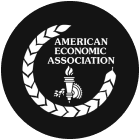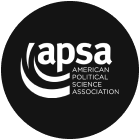Frontiers in Social and Behavioral Science features new research in the flagship journals of the Social Science Research Council’s founding disciplinary associations. Every month we publish a new selection of articles from the most recent issues of these journals, marking the rapid advance of the frontiers of social and behavioral science.

Online platforms for short-term remote work that do not have to comply with traditional employment regulations benefit all market participants, and especially workers.
Online labor platforms for short-term remote work have many more job seekers than available jobs. Despite their relative abundance, workers capture a substantial share of the surplus from transactions. We draw this conclusion from demand estimates that imply workers' wages include significant markups over costs and a survey that validates our surplus estimates. Workers retain a significant share of the surplus because demand-side search frictions and worker differentiation reduce direct competition. Finally, we show that applying traditional employment regulations to online gig economy platforms would lower job posting and hiring rates, reducing aggregate surplus for all market participants, including workers.

A survey of small town politicians in India finds that local government officials lack procedural knowledge on how to govern.
Governments across the Global South have decentralized a degree of power to municipal authorities. Are local officials sufficiently knowledgeable about how to execute their expanded portfolio of responsibilities? Past studies have focused on whether citizens lack the requisite information to hold local officials accountable. We instead draw on extensive fieldwork and a novel survey of small-town politicians in India to show that local officials themselves have distressingly low levels of procedural knowledge on how to govern. We further show that procedural knowledge shapes the capabilities of officials to represent their constituents and that asymmetries in knowledge may blunt the representative potential of these bodies. Finally, we show that winning office does not provide an institutionalized pathway to knowledge acquisition, highlighting the need for policy-based solutions. Our findings demonstrate the importance of assessing knowledge deficits among politicians, and not only citizens, to make local governance work.

Qualitative data from elite independent pre K-12 schools finds that admissions processes are structured to exclude applicants at risk of disabilities.
Historically, elite schools have selected students in ways that reproduce advantages for dominant groups and exclude groups deemed undesirable. The specific outgroup in question has changed over time, but the underlying logic used to exclude these groups is often related to disability. Yet, disability as a social category has received minimal attention in discussions of elite reproduction. In this article, we draw on qualitative data collected from elite independent pre-K–12 schools to show that disability is indeed a salient basis of selection into elite educational environments, one that begins at the earliest moments of educational sorting: admission to elite early childhood programs. Through interviews with admissions personnel, we show that elite independent schools explicitly structure their admissions processes to identify—and exclude—children who are perceived as having or being at risk of developing any type of disability, regardless of impairment type or support needs. We argue that admissions practices at elite independent schools (1) serve as a form of social closure intended to restrict enrollment to young children perceived as able-bodied and neurotypical, and (2) represent a case of essentializing merit, in which elite gatekeepers construct merit as an intrinsic, rather than achieved, property of individuals.

A statistical model is developed to analyze how severe thunderstorm indicators vary across space and time in the U.S., especially under the influence of seasonal changes and El Niño events.
Severe thunderstorms cause substantial economic and human losses in the United States. Simultaneous high values of convective available potential energy (CAPE) and storm relative helicity (SRH) are favorable to severe weather, and both they and the composite variable PROD=√CAPE×SRH can be used as indicators of severe thunderstorm activity. Their extremal spatial dependence exhibits temporal non-stationarity due to seasonality and large-scale atmospheric signals such as El Niño-Southern Oscillation (ENSO). In order to investigate this, we introduce a space-time model based on a max-stable, Brown–Resnick, field whose range depends on ENSO and on time through a tensor product spline. We also propose a max-stability test based on empirical likelihood and the bootstrap. The marginal and dependence parameters must be estimated separately owing to the complexity of the model, and we develop a bootstrap-based model selection criterion that accounts for the marginal uncertainty when choosing the dependence model. In the case study, the out-sample performance of our model is good. We find that extremes of PROD, CAPE, and SRH are generally more localized in summer and, in some regions, less localized during El Niño and La Niña events, and give meteorological interpretations of these phenomena. Supplementary materials for this article are available online, including a standardized description of the materials available for reproducing the work.

In Senegal, women with Type II diabetes combat social stigma from weight loss that negatively affects their physical health and community participation.
In Senegal, Type II diabetes often causes rapid weight loss. Weight loss is usually the reason women will finally seek out a biomedical diagnosis for their ailment. Loss of weight has many negative connotations for Senegalese women—HIV/AIDS, tuberculosis, financial troubles, or an unhappy marriage. When women lose weight, they become the subject of rumors and gossip in their communities. This leads to isolation. Research has shown that isolation has deleterious mental health effects, especially in places as communal as Senegal. Worsening mental health can also exacerbate diabetes. This article explores Senegalese women's experiences with weight loss due to Type II diabetes and the effects their weight loss, in addition to their diabetes, has on their lived experience and their social networks.

A study explores the use of opium as a preventative measure against disease during the transport of Chinese indentured laborers in the mid-19th century.
In December 1853, British officials at Hong Kong amended the Passenger Acts to allow the substitution of “opium for tobacco” on voyages taking indentured laborers, or “coolies,” from China to the Caribbean. Authorities in the US, Cuba, and Peru followed suit by legalizing and mandating opium in what became known as la trata amarilla. By using fresh evidence to explore the genesis of this little-known cluster of regulations, this article explains the process through which Western officials authorized the provision of opium as a prophylactic against shipborne contagions, linking the circulation of opium with the global movement of Chinese labor. Whereas scholars have tended to present smoking opium either as a harmless restorative or as a tool of social control, this study calls attention to the prevalence of comorbidities between opium dependence and infectious illnesses such as cholera and typhoid to suggest that, above all, the drug served as a volatile resource necessitated by the exigencies of epidemic risk.

A study documents the effects of embedding Alaska Native elders into classrooms in the Rural Health Services program at the University of Alaska.
Indigenous science and education provide classification systems for ordering the natural, physical, mental, emotional, and spiritual worlds. Alaska Native groups have shared values about life, kinship, and the interconnectedness of human beings. However, these values and knowledge systems are contested in the European American educational landscape, subjugating Alaska Native peoples through assimilatory acts of settler colonialism (e.g., boarding schools, Eurocentric achievement standards). Decolonization demands action, more than inclusion, to dismantle settler-colonialism and to address all the diverse manifestations and permeations across Tribal Nations. Further, Indigenous psychologies of liberation presume that action needs to take the form of indigenization, cultural-derived antidotes to healing soul wounds, with embodied representations of cultural practices, lives, and epistemologies. Thus, we will discuss the intentional, liberatory act of embedding and reinforcing Alaska Native Elders (i.e., wisdom holders, culture bearers) in the classroom within the Rural Human Services program at the University of Alaska. Using an Indigenous Inquiry Framework, we interviewed four Alaska Native graduates, one non-Native graduate, two allies, and one Alaska Native Elder graduate. Analysis of barriers and Indigenous liberation identified four key domains: (a) transformative healing and love, (b) Indigenous identity development, (c) a generative and holistic education, and (d) allyship. This organization of Alaska Native expertise in the University of Alaska system reflects the growing reclamation of Alaska Native education in the hands of Alaska Native leaders and communities. Alaska Native Elders in the classroom is a fruition of ancestral directives that facilitate space for gathering, deepening, and sharing knowledge, wisdom, and healing.






